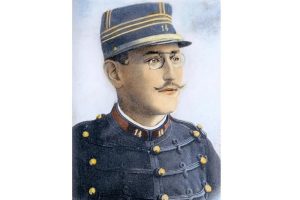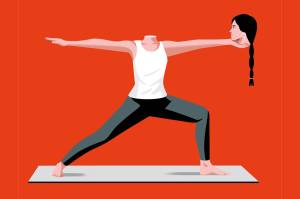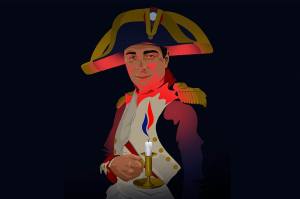South of France
From my hospital bed in Hyères I could look out of the window and see the old town and Edith Wharton’s old house, the Castel Sainte-Claire, away on the hillside. Christophe, a male nurse, came in to welcome me and take my temperature, pulse and blood pressure. He was masked and gloved against possible infection from the old COVID Dix-Neuf and he spoke English.
As he slipped on the finger thermometer and inflatable sleeve, he reminisced about his rugby-playing days. Thirty-five years ago, he said, he had competed against an English team who played rugby with a violence that was incredible. His opposite number on the English side had sharpened his boot studs with a file, and this guy had devotedly raked and punched and otherwise fouled poor Christophe at every opportunity from kick-off to final whistle. He also did this thing that Christophe didn’t know the English word for, so he mimed it with his fingers. ‘Gouged?’ I said. ‘Thank you. Gouged. Today I am so happy because I learn another word to increase my English vocabulary.’
But what truly amazed Christophe was that in the clubhouse afterwards this psychopathic Englishman had loved him like a brother. ‘He kiss me and hug me and he buy me so many drinks and then we dance together like this.’ He mimed unsteadily dancing with his arms around the Englishman’s neck. That violent enmity and love could happily coexist within a single human breast was to Christophe a momentous discovery — literally and metaphorically an eye-opener. I admired this saintly individual and, as he packed up his things, I thanked him for his care and attention with all my heart. Now he looked worried, as though an Englishman’s heartfelt gratitude might change at any moment into a vicious assault.
When I woke from the anesthetic, I found myself returned to this same hospital bed, and Edith Wharton’s old house was now in shadow. A dark, thin, tragic, stern, kind nurse came in bearing a lunch tray. Natasha spoke perfect French, but she was Russian. She asked me how I was. Ravenous, I told her. Then, in spite of herself, she said: ‘I like your shoes.’ My shoes were on the bedside cabinet. I deprecated them. ‘Old shoes,’ I said. ‘Fifteen, 20 years old.’ But I was terribly pleased, on coming round from a general anesthetic, to have my shoes praised. She wanted to know the make and where I had bought them, and we had to pick them up and search the insides in a fruitless attempt to find out.
This was the second time my old shoes had been complimented in the week since I’d resurrected them. The first words of praise came from a French philosopher whose treatise on labyrinths has been translated into six languages, and who now just lies back on his comfortable sofa all day counting and recounting the sunlit slats of the closed jalousies.
I spent a peaceful afternoon on the sofa with this good-natured man. We silently counted the slats and watched dust motes suspended in the air. Once we peeled and ate an orange each. Otherwise we barely spoke. I was waiting for a phone call. After two hours the phone rang. He spotted my shoes as I climbed over him to get to it. ‘I like your shoes,’ he’d said.
[special_offer]
Hospital lunch was a glass pot of puréed apple, plain yogurt, a clear plastic carton with tuna flakes and a quarter of a lemon to drizzle over them, a bread roll, a pat of butter and a foil square of processed cheese. The bread roll was deliciously fresh and crusty. As I tore off the packaging, the chap in the next bed walked past in his underpants and knee stockings on his way to the lavatory.
Earlier I’d heard him give a nurse his date of birth. It was the day after France declared war on Germany in 1939. His body was snow-white and stocky, and his belly was a great gravity-defying globe. Our beds were separated by a blue curtain. He wished me a gracious ‘Bon appétit’ on his way to the lavatory and smiled affably on his way back. When he was back in his bed I could hear him swearing softly to himself behind the curtain.
Then came the moment I was dreading. While I was unconscious, a urologist called Dr Benadiba had replaced the 14-centimeter stent draining my left kidney with a new one. The life of a ureteric stent is six months. When the stent was first put in last July, I was painfully peeing blood and clots for two weeks afterwards. Assuming it would be the same again this time, I went to the lavatory in trepidation and — no blood, no pain. Right as rain. I couldn’t believe it. ‘Pee-pee?’ said Natasha coming in to retrieve the tray. ‘Oui-oui,’ I said. ‘Pee-pee OK?’ she said. ‘Vive la France!’ I said.


















